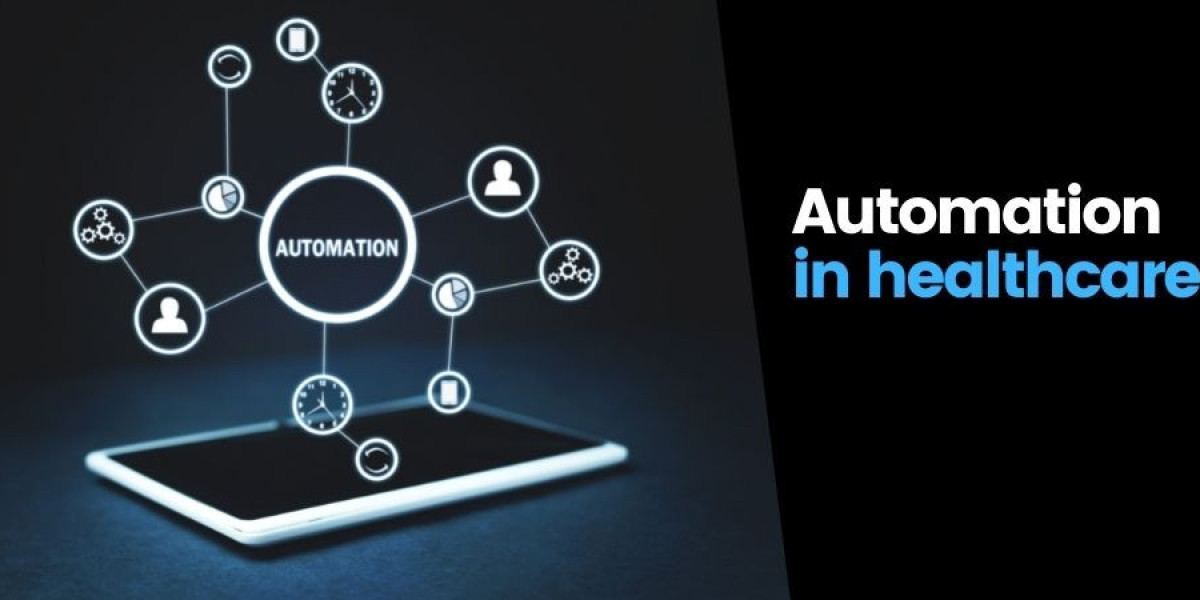The healthcare industry is going through a transformative process driven by rapid technological advancements. Technologies like AI are integrated into various domains of the healthcare system, undoubtedly changing the way patient care operations are conducted. While AI is a powerful tool, it is essential to remember that it's not a solution to everything or that it can replace human touch. However, the significance of the human role remains supreme with any kind of advancement in the tech world.
As technology has streamlined numerous operations have added efficiency to every operation, it still requires keeping a check and balance on automated patient care. However, in this article, we will discuss how automation improves patient care and the intervention to balance technology and human touch in patient care.
Role of Automation in Patient Care
Over the years, healthcare organizations have greatly recognized the role of automation and technology in healthcare. Additionally, they have contributed to the efficiency and accuracy of their operations, which leads to a wider spread of automation technology. AI has streamlined processes, improved patient outcomes, and set up a foundation for patient care.
Automation in patient care encompasses various applications, from administrative tasks to clinical decision-making. Therefore, its primary goal is to enhance efficiency, accuracy, and accessibility while reducing the burden on healthcare professionals. Following are some of the areas where automation is making a valuable impact:
Administrative Tasks
AI helps in automating appointment scheduling, billing, and medical record management which reduces administrative workload and streamlines operations.
Diagnostics
AI-powered tools help to analyze medical data that detect diseases like cancer, heart conditions, and neurological disorders with high accuracy.
Medication Management
With a medication management system, you can ensure seamless medication dispensation, reducing errors and enhancing patient security.
Remote Monitoring
AI also automates tracking patients' vital signs in real-time with the help of wearable devices which enables early intervention.
Telehealth Services
Automation facilitates virtual consultations, and leverages systems and symptom-checking apps.
Balancing Automation with Human Touch
The true value of AI lies in its collaboration with humans. While AI can process broader datasets at remarkable speeds, it requires a human touch that analyzes them and applies meaningful and critical thinking to further make decisions. However, balancing automation with human care ensures is essential to enhance the overall process of patient care.
Furthermore, you need to train healthcare providers to maintain empathy and communication skills. This balancing also ensures optimal care by combining automation with human care. For example, AI can assist with diagnostics, but the final decisions always involve a healthcare professional.
Benefits of Automation in Patient Care
Automation has multiple benefits that significantly contribute to patient care. As it enhances and improves operational efficiency and patient care. Here are some of the top benefits of implementing automation in patient care:
Enhanced Efficiency
Automation reduces the time spent on repetitive tasks, allowing healthcare professionals to focus on patient care. For example, AI-driven tools can analyze imaging scans in seconds advancing treatment plans.
Improved Accuracy
It improves accuracy by minimizing human errors in tasks like medication dispensing or data entry, to ensure better patient outcomes and safety.
Increased Accessibility
Telehealth and automated systems make healthcare accessible to remote and underserved areas, that build ways for potential care delivery to patients.
Cost Savings
Automation reduces operational costs, enabling healthcare providers to allocate resources more effectively while making affordable services for patients.
Potential Challenges of Automation in Patient Care
Healthcare organizations are continuously revolutionizing patient care and get numerous benefits from it, but they also bring potential challenges. However, the most common challenges are:
Workforce Displacement
One of the biggest challenges of automation is the fear of losing jobs and workplace displacement. It is essential to consider that healthcare automation is not supposed to replace healthcare professionals but rather to encourage their capabilities and streamline processes. Moreover, if used correctly automation can create new job opportunities in unexpected areas of healthcare.
Loss of Personal Connection
If healthcare professionals over-rely on technology, it increases the risk of decreasing human intervention which is vital for patient trust and emotional well-being.
Privacy and Security Concerns
As the scope of AI is increasing, privacy and security concerns are being at the forefront, the more use of automated systems the more patient data is at risk. Moreover, such patient data increases the risk of data breaches and cyberattacks.
Technology Dependency
With the advent of automation in the healthcare sector, it has become critical to look after human judgment in complex situations. Healthcare organizations have diverse IT infrastructures and require seamless integration with other automation techniques. However, it is essential to select top automation solutions compatible with the organization's system.
Future of Automation in Patient Care
The future of patient care lies in integrating advanced technologies like AI, robotics, and wearable devices with the irreplaceable human qualities of empathy, intuition, and care. As automation becomes more sophisticated, it will play an even greater role in enhancing efficiency and outcomes while allowing healthcare professionals to focus patients on patients specifically. In addition, the future of AI is quite promising and can be addressed as:
Personalized Patient Treatment
The future of AI in healthcare presents both exciting opportunities and significant challenges. As technology continues to advance, AI has the potential to revolutionize the healthcare industry, improving patient care, diagnosis, and treatment outcomes.
Ethical and Legal Concerns
AI has been leading in healthcare but requires a clear guideline on regulations to ensure patient privacy and data security. Furthermore, ethical considerations, such as transparency, bias, and accountability, also need to be addressed to maintain trust and ensure fair and unbiased decision-making.
Integration and Adoption
Healthcare organizations need to invest in infrastructure, data management, and training to effectively implement and utilize AI technologies. The integration of AI in healthcare systems is essential but quite challenging. However, it ensures that AI systems seamlessly integrate with existing processes and workflows is crucial for successful adoption.
Human-AI Collaboration
The right balance of AI and human involvement is essential to maintain empathy, compassion, and personalized care. Healthcare providers need to be trained to effectively collaborate with AI systems, thus enhancing their capabilities while retaining the human connection.
Dig Deeper: How Automation is Transforming Patient Care in Healthcare
Moving forward with Automation
Patient care is transforming with AI and automation, improving efficiency, accuracy, and accessibility. However, achieving a balance between technology and humans is essential. AI ensures that the patient receives high-quality care, efficiency, and compassion. To realize the benefits, accessibility, and implementation of AI, healthcare organizations must move towards AI and utilize other tasks.
Lastly, AI is not a valuable solution for everything, but it is an optimized process that can never take over the human role.







